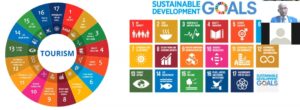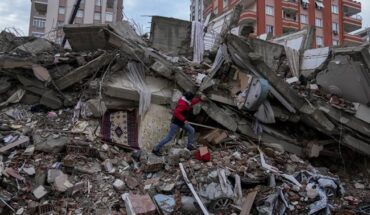By Dominick Rodrigues
Dubai : Collaboration with balance of sustainable growth between present and future through sustainable development goals and related infrastructure is among the challenges faced by the tourism sector in world economies, especially during the Covid-19 pandemic, said Dr. Jonathan Day, Associate Professor, Purdue University, USA.
Prof Day was addressing a webinar titled “Sustainable Tourism” held recently by the Zayed International Foundation for the Environment through its Environmental Awareness Raising Program here recently.
Highlighting sustainable tourism and its huge impact on countries’ economies, Day said the importance of tourism is not limited to financial revenues, but also includes many sectors such as environmental protection, cultural development, job opportunities, in addition to its contribution to establishing security and peace.
Detailing the challenges posed by the COVID19 pandemic that exposed the vulnerability of the tourism sector, he said one of those challenges is the balance in sustainable growth between today and the future. Dr. Day focused on the concept of collaboration, saying “Nothing for me – without me.”
Emphasizing the importance of sustainable development goals, he urged for creating more sustainable conditions towards achieving sustainable tourism. “Everyone should strive to achieve this because the importance of tourism is not limited to workers in the tourism field, but also includes politicians, decision-makers, architects, road and transport companies. Activating sustainable tourism is possible by establishing a series of standards and activities that are related to social, economic, cultural and environmental effects,” he noted.

For the concept of sustainable tourism making a greater impact, Dr. Day reiterated the “urgent need to build a sustainable infrastructure, confirming that the role of institutions lies in supporting basic elements such as branding, marketing, production and supply chain management. Sustainability is not enough and what we need is to make the place in which we live more beautiful and better. The existence of the so-called +regenerative movement+ can have an impact of changing the concepts and lifestyles that we live in today’s world to achieve sustainable tourism”.
Earlier, — on behalf of the foundation’s chairman, Prof. Dr. Mohamed Ahmed bin Fahd, — Eng. Hamdan Al Shaer, member of the Foundation’s Higher committee, welcomed the “well-known tourism expert, as part of the Zayed Foundation’s endeavor to build sustainable partnerships with institutions, and individuals concerned with environmental affairs. This symposium tackles a vital issue that constitutes one of the most important pillars of the economy in our country, which is sustainable tourism.”
Describing the United Arab Emirate as one of the most attractive destinations for tourism on both Arab and international levels – with Dubai representing the icon of tourist destinations, Al Shaer said “It is our firm belief that the great role tourism institutions in the country are playing is in line with the domestic tourism strategy launched by HH Sheikh Mohammed Bin Rashid Al Maktoum, Vice President, Prime Minister and Ruler of Dubai,”
“The UAE is committed to providing sustainable tourism destinations that have the ability to compete globally. We hope to be acquainted with the latest scientific findings for achieving sustainable tourism and upgrading its relationship with the environment and society,” he added.
Yousuf Lootah, Executive Director – development & investments, Department of Tourism & Commerce Marketing (DTCM), said “Dubai’s sustainable tourism program is managed through four pillars: +Education, Awards, Programs and Standards+ which aimed at preserving and making it a global destination and a sustainable city.
“The goals of sustainable tourism in Dubai have been set in a way to be in line with the national agenda of the United Arab Emirates and the Emirate of Dubai within a ten-year time frame (2020-2030) which includes the +green growth strategy+, Expo 2020, the UAE vision, the Dubai plan 2021, 2030 UN agenda and 2030 Dubai Strategy,” Lootah said while urging for adoption of the concept of responsible tourism, that could lead to achievement of sustainable tourism.
Majid Al Suwaidi, Director, local promotion department, Sharjah Commerce and Tourism Development Authority (SCTDA), highlighted the authority’s initiatives and projects in sustainable tourism, and the wise leadership’s policies for providing job opportunities and promoting local culture and products.
Emphasizing the role and vision of HH Sheikh Sultan bin Muhammad Al-Qasimi, Member of the Supreme Council and Ruler of Sharjah, as having greatest impact on human development and sustainable development, and for Sharjah to be a symbol of culture, thought and heritage, Al Suwaidi said that more than 15% of the emirate’s area has been designated as +nature reserves+ for preserving environmental diversity.
The symposium ended with Dr. Eisa Abdel-Latif, the Chief Technical Advisor of Zayed International Foundation for the Environment, thanking the distinguished speakers and other participants. He said this webinar was held in harmony with the Foundation’s pivotal role in raising awareness and preserving the environment, making best use of its wealth in scientific knowledge to achieve a balance in environmental diversity, and ensuring achievement of environmental sustainability and protection.



